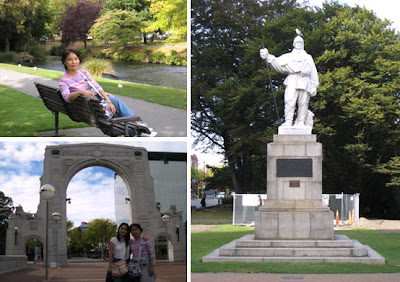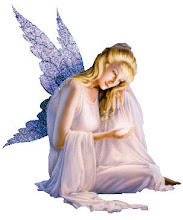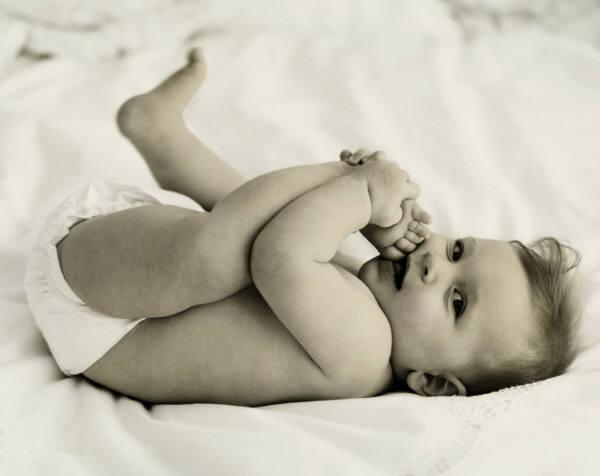We started our exploration of the city from Cathedral Square, named after the building that dominates it. Built from 1864 – 1904, there are many interesting memorials inside the Cathedral and a panoramic view of Christchurch can be seen from its tower. Besides the Cathedral is the Citizens War Memorial and on the other side is the Chalice, the 18m high sculpture created to celebrate the new millennium and the 150th anniversary of the founding of Christchurch and Canterbury. The statue of John Robert Godley, the founder of Canterbury, faced the main Cathedral entrance.

The Cathedral, the Chalice and the Citizens War Memorial
 Cathedral Square
Cathedral Square
 Beautiful stained glass windows, Maori Tukutuku craft panel and wall tiles
Beautiful stained glass windows, Maori Tukutuku craft panel and wall tiles
Walking towards the tranquil Avon River that meanders through the city, we passed by the statue of the Antarctic explorer Robert Falcon Scott, sculpted from Carrara marble by his wife Kathleen in 1917. A short distance away was the Bridge of Rememberance, standing at the end of City Mall, a pedestrian shopping precinct.

 Statue of Robert Falcon Scott and Bridge of Rememberance
Statue of Robert Falcon Scott and Bridge of Rememberance
A pleasant walk along the Avon River bank, beneath wonderful old trees, took us to the Antigua Street Boatsheds, the sole survivor of several boating sheds that once stood on the banks of the river. The original Maori name for the Avon was O-Takaoro (place of play). The river was a valuable ‘mahinga kai’ (food gathering) source for local Maori ‘iwi’ (tribes).

The beautiful bank of the Avon River

Look at how humongous tree dwarfed hubby and mum!
From the boatshed, we headed to the Botanic Gardens, comprising 30 riverside hectares planted with >10,000 species of plants. Opposite were the stone Gothic Revival buildings of the former University of Canterbury, now The Arts Centre.
 The colourful plants in the Botanic Gardens
The colourful plants in the Botanic Gardens
Housed in one of New Zealand’s finest historic building, the main entrance of the Canterbury Museum was adjacent to the main entrance of the Botanic Gardens. A trip to the museum is a journey through the stories of New Zealand’s first people, the tangata whenua, the moa-hunters Maori and early European settlers. Other highlights included spectacular fossils, beautifully fashioned Maori treasures, decorative arts and early New Zealand European costumes, the Bird Hall and the world’s most important collection of Antarctic items from the heroic era of exploration. Christchurch Street is a replica of a Victorian Street complete with authentic shops crammed full of fantastic period items.
A short walk away was the Christ’s College, one of the city’s earliest schools, which contains school buildings dating from 1863. The city’s founders used the Eton College, a traditional boys’ college in England, as the model for Christ’s College. Durham Street Methodist was the city’s oldest stone church. Opposite the church are the city’s court buildings, which include a number of heritage buildings and are part of the site of Puari, an early Maori settlement. The Canterbury Provincial Council Building, the only purpose-built provincial buildings still in existence in New Zealand, was a fine example of Victorian Gothic Revival architecture.

The beautiful compounds of Christ's College
 Clockwise from top left: The Arts Centre, Canterbury Museum, Canterbury Provincial Council Building, Durham Street Methodist
Clockwise from top left: The Arts Centre, Canterbury Museum, Canterbury Provincial Council Building, Durham Street Methodist







2 comments:
You went to New Zealand for a business trip? Can I work for your organization please? ;-)
Kittycat, I think being a SAHM is still better leh.
Post a Comment